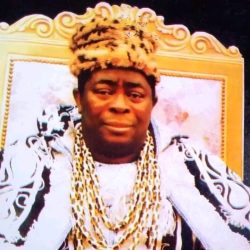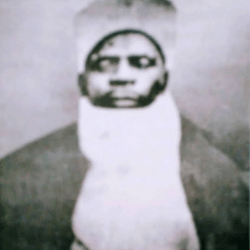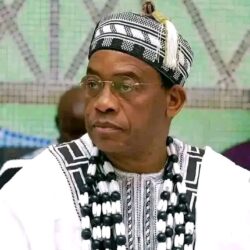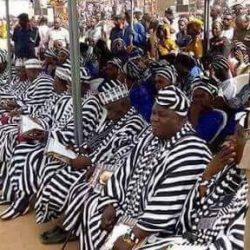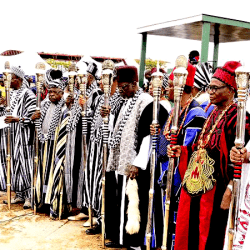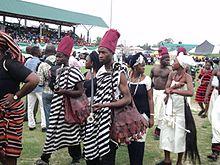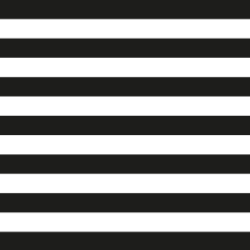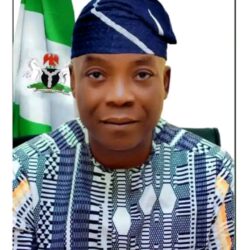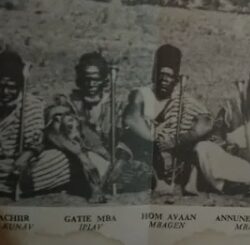The very first formal expression of the demand for a Tor Tiv occurred during the 1934 meeting of the Tiv Central Council. The person who brought up the matter for discussion was Jato Aka of Turan, a local potentate who had survived the transition from district head or clan spokesman and was anxious to become the first Tor Tiv.
Using the occasion of the Tiv Central Council to press forward his ambition, Jato Aka asserted that at the time of Sir Donald Cameron’s visit to Gboko in May 1933, the Govemor had told him: ” … the whole ofTiv country had been placed in his (Jato Aka’s) hand and that Gboko had been built as his capital.” Without seeking the support and co-operation of the eiders present at the Tiv Central Council meeting, Jato Aka proceeded to declare himself Tor on the basis of his spurious caims regarding the wishes of the Govemor.
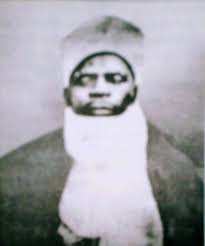
He further announced to the consternation of the elders present that, he wished to appoint Iyorkar Ako, a Tiv teacher at the Katsina Ala Middle School, to be his representative at Gboko, and Mr. U. Orodi, the Tiv superintendent of the Tiv Native Treasury would be his financial adviser. It would appear that the elders were irritated by Jato’s spurious claims and the meeting broke up in chaos. It was reported that J. J. Emberton, the officer who was acting as Chairman, insisted that Jato Aka must have misunderstood the Govemor’s remarks, pointing out that Iyorkar had been acting as the Govemor’s interpreter. Despite the general opposition to Jato’s claims by members of the Tiv Central Council, his outspokenness had earned him the support of the elders from around Katsina Ala.
However, the majority of elders who claimed not to have been previously consulted on the matter opposed him. Thus, Jato Aka and his supporters from the neighbourhood of the cosmopolitan town of Katsina Ala and the educated elite had apparently failed to talœ the main body of elders into confidence. This division within the ranks of the elders was not lost on the British officials present. The issue was put to vote and Jato Aka was defeated.
Cameron later vehemently denied having said anything, which might have been misconstrued to indicate recognition of Jato Aka as paramount chief. He blamed the entire affair on Iyorkar and suggested that official action be taken against the teacher-interpreter.
Since there was no transcript of the Governor’s conversation with Jato Aka, a mere denial by the Governor could not be taken as proof that he did not say something, which might have been open to misunderstanding. Emberton accordingly dismissed the episode as merely a passing fancy, which had been squelched by the
conservative elders and was at best allowed to be forgotten. He assured Cameron that the local administration, aware of Iyorkyar’s
intrigues, was able to anticipate them. Hence there was no need, to dismiss an otherwise useful teacher.
For a while, Emberton’s optimism in dismissing the agitation for Tor Tiv seemed justified as the matter was not raised again at meetings of the Central Council. But the sudden death of Audu Dan Afoda, the Sarkin Markurdi in 1945 created problems for the administration anxious to strengthen the native authority system. His son was proposed as likely successor – a proposal which was deemed an affront on the Tiv and led to bad blood not only between the Tiv and the administration but also between the Tiv and stranger elements in the town.
The British administration was of the opinion that the chieftaincy institution was not indigenous and pressed on with their earlier proposal to have Audu’s son succeed him. But this further alienated the government from the people and created a poisoned atmosphere that ultimately led to violence in 1946. The visit of Sir Arthur Richard to Gboko in 1946 created a welcome opportunity to present a formal request for the creation of the office and title of Tor Tiv to the Govemor.
Nearly all the clan heads had agreed on the desirability of a paramount Chief, but they were unable to agree upon a common candidate. Consequently, two candidates emerged to contest for the post of Tor Tiv namely Makir Dzakpe, the Chief of Tiv Native Authority Police and a former Sergent Major in the West African Frontier Force (WAFF); and Gonda Aluor, the Chief Scribe of the Tiv N.A. Going by Tiv segmentation, the two candidates represented the two dominant subgroupings in Tiv society namely the Ichongo and lpusu. Gonda Aluor was Ichongo, while Makir Dzakpe was Ipusu. The clan head of Mbara then asked the Governor if he could choose one of the two candidates for them. To do so would have resulted in the alienation of the opposing faction. Consequently, Richards insisted that the clan heads must make the decision themselves.
At a Tiv central meeting which was convened at the instance of Richard’s visit, the elders debated the qualities of the candidates and eventually, Makir Dzakpe, Chief ofN.A. police was elected as the Tor Tiv by 25 votes to 11, with some of the clan heads abstaining from voting. The confirmation of Makir Dzakpe as the first Tor Tiv marked the climax in the political development of the Tiv. The appointment also contributed a great deal to the resolution of the looming crisis following the death of Audu Dan Afoda in 1945. But restored peace proved illusory as the introduction of party politics into the delicately balanced Tiv social structure ultimately resulted into endemic violence between 1960 and 1965.
